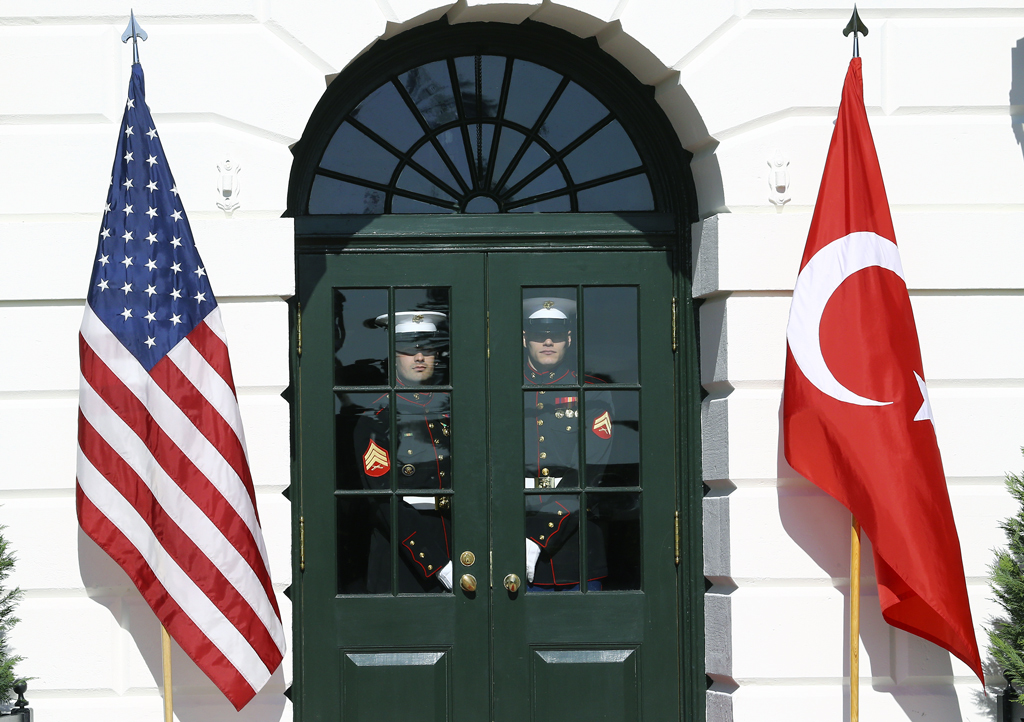Last week, I discussed the likely and expected direction of American foreign policy during the second Donald Trump term. I compared Trump’s foreign policy with that of the Bush administration, analyzing three key factors that shaped American foreign policy in the first decade of the 21st century. I also explored how these factors may shape United States foreign policy under the next administration. Today, I will examine the remaining three factors that will shape the American foreign policy orientation.
Imperialism
The first factor is the imperialist policies of the U.S., which the colonial European powers have followed for centuries. The U.S. had been advocating a globalization process, which was an Americanization or Westernization process that envisages the assimilation of the world within the American values and keeps others dependent on the U.S./West. As a result of this imperialistic logic, the U.S. has had a negative perspective of other civilizations and cultural entities. Therefore, its relations with the non-Western parts of the world are largely conflictual and have been based on a zero-sum mentality.
The imperialist project regarding the Middle Eastern region started in 1798 and continued to the Greater Middle Eastern Project, which was initiated after the Sept. 11 attacks and the invasion of Iraq. As in the case of the collapse of the Saddam regime in Iraq, the main concern of the U.S. is to punish, deter and restrict all who are perceived as a threat to American interests. These states (Iran and Iraq) were then declared as rogue states by U.S. officials.
Within this context, we should not forget that the creation of the Israeli state itself is an imperialist project initiated by the traditional colonialist powers, namely the U.K. and France, after World War I. The same colonial powers paved the way for the creation of the Israeli state after World War II. The U.S. and other Western powers instrumentalized the United Nations for the same purpose. By providing unconditional support to Israel from the very beginning, the U.S. maintained the legacy of the traditional colonial powers.
Furthermore, as the world hegemon and part of its imperialist perspective, the U.S. also wants to control the Middle Eastern oil and natural gas market, which has been at the center of the imperialist understanding for decades. These natural resources are not only used for economic purposes but also for political objectives.
Orientalism
The second factor that will shape American foreign policy during the next administration is Orientalism, as it has been for decades. The negative perception of the Middle Easterns was constructed under the influence of discriminatory Western Orientalism. According to Western and American administrators and elites, the West always represents righteousness and superiority, while the Middle East always represents backwardness and imperfection. Being anti-Arab and anti-Muslim as a Middle Eastern is also a product of this perspective. Accordingly, all states that do not want to remain dependent on the West are alienated and attempts are made to punish them. This is the position of medium powers in regions such as Iran and Türkiye vis-à-vis the West.
The orientalist project aims to make the values of Western civilization transform the regional people into “second-class Westerners” and to remove them from being a threat. In other words, while the West’s exceptionalism continues, Middle Eastern countries must be kept under control by purifying them of their traditional values. Since Sept. 11, the “new orientalist” understanding has been implemented together with the social, political and ideological beliefs of the imperialist decision-makers. This is one of the most important reasons for the aggressive and unilateral American foreign policy.
The Orientalist perspective is not limited to the ultra-nationalists or conservatives. When it comes to the U.S. Middle East foreign policy, it does not matter much whether you are a Democrat or a Republican because there is no significant difference in the perspective of the American political elites towards the region. According to this, Muslim Middle Easterns cannot never be trusted. Therefore, despite the temporary alliances established with countries such as Iran, Saudi Arabia and Türkiye, the U.S. and the West only see the state of Israel as an “absolute ally.” The U.S. has been following policies even against the national interests of its longest-standing regional allies.
Orientalism is the main source of justification of all crimes committed by Israel. In other words, Israel and its Western supporters can do anything for the maximization of their national interests, including killing thousands of innocent people and committing genocide against Palestinians. The rationalization of mass killings and human rights violations by the Israeli government and the dehumanization of Palestinians by the mainstream American media are reflections of this orientalist perspective.
Zionism
The third factor that will influence American foreign policy toward the Middle East during the next administration is the dominance of Zionism. Both Democrats and Republicans have been repeatedly declaring that they are Zionists, a political ideology that was recognized as racism by the United Nations General Assembly in 1975. Despite that, not only a large part of the Jewish people but also a significant portion of Christians also call themselves Zionists.
One of the constant goals of American foreign policy is to ensure the security of Israel. The pro-Israel lobby in the U.S. has taken Washington’s Middle East policy hostage. They keep the executive and legislative branches under pressure and are trying to create a positive image of Israel in the country through the media they control. They can easily accuse anyone who criticizes Israel's policies of anti-Semitism and hatred of Jews. They struggle to prevent the re-election of congresspeople who hold anti-Israeli views. Although it is the most violent and the most aggressive state in the region, the one that violates international laws and human rights the most and the one that produces the most weapons of mass destruction, Israel is constantly favored by the entire West, especially the U.S.
The pro-Israeli lobby in the U.S. prioritizes Israeli interests above all else. With its good organization, support from other lobbies and enormous financial resources, Zionism significantly influences American domestic and foreign policy decision-making processes. When the American military troops overthrew Saddam’s regime and invaded Iraq, then-U.S. Secretary of State Colin Powell stated that “another enemy of Israel has been eliminated.” Similarly, one of the most important reasons why the U.S. administration is quarreling with Iran today is Israel’s opposition to Iran. The U.S. administration prioritizes the defense of Israel’s interests and security, leaving aside the security of its own state and many of its allies.
Therefore, the U.S. has been trying to punish all countries in the Middle East, except Israel, for not complying with international law, norms and customs. For example, while the U.S. remains silent about Israel's nuclear power, it is trying to prevent Iran from obtaining nuclear energy. The U.S. defends the illegal and immoral actions of the State of Israel on all international platforms, including the U.N., at the cost of damaging its own image and violating international rules. It does not hesitate to share the intelligence information with Israel.
After the Jews, those who support the state of Israel the most in America today are Christian fundamentalists. The pro-Israel lobby, which has Christian Zionists on its side, is almost unrivaled in Washington’s foreign policy arena. The Israel lobby is primarily responsible for policies that harm both the people and countries of the Middle East and the American people. As long as Washington continues to give Israel this unconditional support, it is inevitable that it will encounter opposition in the region.
As of today, the U.S. support for Israel is based on two fundamental religious principles, one belonging to the Jews and the other to the Christians. The first is the Zionist perspective, which is the political expression of Israel’s sacred racism. Zionism is a political-religious understanding that assumes that other communities are obliged to serve only the Jews. The second is the expectation of Christian fundamentalists such as evangelicals and Christian Zionists, who want Jews to gather in the holy lands to accelerate the return of Jesus Christ.
In conclusion, the U.S. foreign policy orientation will be largely conflictual during the next administration. The U.S. foreign policy towards the Middle East has not changed for decades. That is, there is a continuation in U.S. foreign policy towards the region. There are no fundamental differences between the policies of former President Barrack Obama, current President Joe Biden or President-elect Donald Trump administrations. All consider Israel’s security at the center of their regional policy, want to restrict the Iranian and Turkish regional influence and try to keep the Arab world dependent on the Western powers. It seems that the next Trump administration will also maintain this traditional perspective.
[Daily Sabah, November 20, 2024]







